|
When I went to church in the morning the first thing I did was to improvise a piece based on today's Gospel reading "Love Your Enemies". Then I improvised on Genevan Psalms 62 and 63 for two voices. Each improvisation had 2 verses. In the first, the tune was in the soprano and in the second, the parts switched. Then I sight-read 2 chorale preludes by Dieterich Buxtehude based on "Komm, heiliger Geist", BuxWV 199 and 200. And finally, I practiced Bach's C major Toccata, BWV 566a.
I also wanted at last to fix Bb pedal note in the tenor octave which has been non-responsive for the last week or so. It took lots of crawling in the organ to find out that the problem wasn't reachable from there. I had to regulate 3 trackers and Great/Pedal coupler. The final result is that now this Bb pedal is again responsive but not when 32' Subbass is drawn with the stops on the right hand side. Oh well, we don't need 32' stop that often and I have exhausted all my organ maintenance skills. I think while we celebrate 20th year since the reconstruction of this instrument back in 2000, the time for major repairs on this organ is approaching and I will ask the university for funding for next year. This year I'm still waiting for them to give money for blower replacement of the chapel organ.
Comments
Would you like to learn Allegretto amabile in Ab Major from L'Organiste by Cesar Franck?
I hope you'll enjoy playing this piece yourself from my PDF score which will save you many hours of work and help you practice efficiently. Thanks to Jan Pennell for her meticulous transcription from the slow motion video. What will you get? PDF score with complete fingering written in. Basic Level. 1 page. Let me know how your practice goes. This score is free for Total Organist students. Check it out here
Yesterday in the morning I was thinking about the famous Biblical parable of talents and how it applies to artists. In this parable Jesus tells a story about a host who gave some talents (money) to 3 of his servants before going away. Two of the servants invested their talents and grew the resulting amount when the host came back. The third was so terrified of the host that he dug his talent in the earth and only had the same amount when his host came back. Of course the host was very happy with the first two and very angry with the third one who dug his talent.
Does it apply to artists? Do we have responsibility to develop and multiply our talents? I think so. But for some people it's so hard to accept this fact. I wish more people would share their gifts with the word. If I can sing, I have to sing. If I can play, I have to play. If I can write or draw or teach or inspire people, I have to do all that. Because when the time comes to leave this earth, the worst thing probably would be to have regrets about all the things I wish I had done but didn't... But what about people who THINK they don't have any talents? That's true that some of us have stronger artistic urges that others but everyone has a talent for something. It may be they haven't discovered it yet or haven't looked deeply enough. I especially think this sense of modesty, especially for women should be disregarded. I know, society throughout history has laid many obstacles to women in their path to artistic freedom but it's up to us now to embrace our individuality and put aside social norms. The first step to doing this is to go back to our roots, to our childhood and see what we were passionate about when we where 6 years old. The truth is, this passion hasn't gone away, it may have only been suppressed by the society. Maybe today will be the day when we can feel like that child again?
Would you like to learn Quasi lento in G Major from L'Organiste by Cesar Franck?
I hope you'll enjoy playing this piece yourself from my PDF score which will save you many hours of work and help you practice efficiently. Thanks to Annabel Brown for her meticulous transcription from the slow motion video. What will you get? PDF score with complete fingering written in. Basic Level. 2 pages. Let me know how your practice goes. This score is free for Total Organist students. Check it out here
Vidas: Hi, guys, this is Vidas.
Ausra: And Ausra V: Let’s start episode 567, of Secrets of Organ Playing Podcast. This question was sent by John. And he writes: Dear Vidas and Ausra, How are you today? I'm sorry to hear about your troubles with the music distributors and the very unfair treatment you are receiving. I can't believe they are doing this to you. And it seems James Flores is also being harassed over copyright issues when his music is in the public domain. Thanks for your advice on the role of music director, and I look forward to your next podcast! I am working hard on Prelude in the Classic Style by Gordon Young, and I am finding I am learning it much faster than I expected! I remember one of your students from the Unda Maris studio played this piece and it sounded magnificent on the St John's organ! So now when I'm practicing I try to imagine I am there playing it at St John's! Take care, God bless John... V: Oh, that’s a nice message. A: Yes, it is. V: So, his first question was, ‘how are you today’! A: I’m fine. V: What are you doing today? How are you feeling today? A: Well, I will have one private lesson today, to teach, and then no class next week and I’m so excited about that. V: Mmm-mmm. Spring break? No. A: No, that’s a winter break. V: Winter break. A: Yes, we are still in February you know. V: Yeah. My plans today is to start composing a piece based on the choral tune for Lent, passion chorale; ‘O Sacred Head Now Wounded’, and I’m having a little bit hard time figuring out what can I do with a Lutheran choral like this, how it would fit my style, and I know that Gregorian Chant works well with my modal writing. And Ausra suggested that I do something with it. What did you suggest? A: I said that you need to embellish the choral melody and do it some more like Gregorian chant. Add some non-harmonical tunes. V: Mmm-hmm. We’ll see about that. A: And then your style will work for you, just fine. V: John writes about being sorry that DistroKid banned me from uploading my organ music to Spotify and other audio platforms. And since then I found another platform and it’s called Mixnauten and their business model is different from DistroKid, and actually they’re, actually interested in seeing their customers succeed because they take not subscription fee like DistroKid has. Once a year you pay a yearly subscription and irregardless if you’re successful or not, if you’re making a lot of money or very little money, you always only pay certain amount. For me it was thirty-six dollars because I have this double artist account for Ausra’s music too. But with Mixnauten they take percentage—thirty percent of your revenue goes to Mixnauten, so when you grow, the company grows. So it’s win-win for all of us involved, you know. A: I think that’s a very wise solution. V: Yeah. And it doesn’t cost me anything from my own pocket. A: That’s good. So we earn more and it’s better for you as well. V: Yes. A: Because I think DistroKid just treated you so unfairly. So I guess they will bankrupt in the future. V: Mmm-hmm. Yeah. I know. Spotify has some shares in DistroKid too, minor shares, but they are too big to care about their customers. And the copyright issues that James Flores is facing, sometimes it’s not exclusive to him. Sometimes my videos get copyright notices… A: This is just idiotic. For example, when somebody shows the complain about you playing Bach’s Invention #1… V: Yes. A: That’s total (expletive not included). Who could copyright that? V: Well, exactly. Somebody suggest that I would upload all my videos but not strait away like I would play them, but with a little bit increased or reduced speed-change and tuning, a little bit higher or lower, just a little bit. Then the copyright bots and software wouldn’t pick it up. What do you think about that? A: Well, maybe it’s okay, somebody who listens [to] you doesn’t have a perfect pitch, otherwise I don’t think it would be so well. V: I mean, it’s not like half a step, but maybe just a few cents. A: Mmm, well, I don’t know about that. V: Yeah, it’s just too much work. A: It is. V: If you produce, like one video per week, or one video per month, then okay, you can polish it and edit it and do all kinds of fancy things with it, but when I do several per day… A: True. V: It’s not worth it. I just file a dispute about copyrights and usually they release it. And James Flores is doing the same thing. So now, John is playing ‘Prelude in the Classical Style’, by Gordon Young. Do you remember this piece? A: Yes, I remember it very well. V: Our student Arnoldas played it. A: Yes. V: And it’s still available on Youtube to listen to. A: It’s a nice piece. V: Yeah, very popular. Even though organist and composer, Gordon Young, was living in the early 20th Century, the style here is really classical and sounds like from early 19th Century, I would say, like Lemmens. A: Yes. V: Remember ‘Fanfare’ by Lemmens? A: Yes. V: Same thing. It’s a very fun piece to play in public. Maybe to end a recital or begin recital. I think Arnoldas began our Unda Maris recital with it. A: Yes. I think it’s one of the pieces that sounds better and more complicated than it really is, more complex than it really is. It’s not a hard one, piece to learn, even for a beginner. So it really worth attention. V: Yeah. And since John was playing a recital and St. John’s before, he now can imagine that he’s back and playing on our organ, the piece by Gordon Young. A: That’s very nice. V: Wonderful. Thank you guys. This was Vidas. A: And Ausra. V: Please send us more of your questions. We love helping you grow. And remember, when you practice… A: Miracles happen!
Thank you everyone for participating! You all made us very happy with your entries. We have all selected the following winners. You can congratulate them here.
Have you ever wanted to start to practice on the organ but found yourself sidetracked after a few days? Apparently your inner motivation wasn't enough.
I know how you feel. I also was stuck many times. What helped me was to find some external motivation as well. In order for you to advance your organ playing skills and help you motivate to practice, my wife Ausra - @laputis and I invite you to join in a contest to submit your organ music and win some Steem. Are you an experienced organist? You can participate easily. Are you a beginner? No problem. This contest is open to every organ music loving Steemian. Here are the rules
Before breakfast I filled my logbook and wrote in my diary while listening to my daily mix on Spotify. Then I went to the church to tune reeds but found pedal tenor Bb stuck after Pierre Zevort’s rehearsal yesterday which needed fixing. Had a hard time of finding out where the problem is because the 2nd manual tenor Bb key was also jammed. I regulated some screws under the wind chest but this only complicated things. Finally looked at the pedal coupler mechanics and found one metal rod mixed with coupler element. It needed just a touch of a finger to fix. It happened several times before, usually when organists play music too dramatically for too long. Recorded a video fixing this coupler.
Then was the time to tune some reeds. Luckily Diana came to press the keys and stayed as long as I needed despite that she wanted to go to the book fair. I tuned Trompete 8’ on the 1st manual, Krummhorn 8’ on the 3rd manual, pedal Posaune 16’ and Trompete 8’. In comparison to fixing that pedal Bb, tuning went rather smoothly. Then improvised a little with reeds to check the tuning.
At home watched Pacific Rim while Ausra was gone to her parents. Soon I joined her too because they had some guests and we ate dinner. But I didn’t stay there for long because I had to go to church to practice with Pierre registration changes. It wasn’t very difficult for me because most of his pieces were registered loudly. He used most of the couplers which not only made his playing very difficult but also complicated things mechanically. He did it despite me advising him not to use them too much.
Then came the time for his recital. Even though the weather was really awful, with wind and heavy rain, I was pleased to see a good crowd of listeners in attendance. The program was promising it to be very long (90 minutes) but luckily Pierre agreed to cut Messiaen’s Transport de Joye from the program which shortened the recital to 1 hour and 20 minutes. Out of all the pieces, only 1 was relatively soft - Meditation by Louis Verne and Veni Creator by Maurice Durufle had a few soft variations. He opened with Te Deum and Victime Pascali Laudes by Charles Tournemire which of course both are very loud pieces, transcribed from his improvisations into organ scores. Then came Prelude and Fugue on the name of Alain and variations on Veni Creator (without a prelude or Adagio) by Maurice Durufle. They both ended loudly but at least had some dynamic contrasts along the way. Luckily I was announcing the program and talking before each piece so that the audience could rest their ears a bit. Before Placare Christe Servulis by Marcel Dupre I announced that now will come a softer piece but I was wrong. Loud again. Only afterward was a quieter Vierne’s meditation which was followed by Vierne’s transcription of Prelude in C# Minor by Rachmaninoff which for the most part also was registered rather loudly. To end his recital Pierre chose 2 improvisations by Pierre Cochereau - Venez Divin Messie and Adeste Fideles. Both were Sortie type pieces with Tutti registrations. Luckily, I saw only a couple of people leave before the end. I was praying to the spirits of pedals couplers that they would hold. They didn’t. I had to disengage pedal couplers a couple of times to fix the ciphers and add Posaune 16’ instead. I actually didn’t understand why he almost didn’t use native pedal reeds throughout the recital and gave preference to couplers. Luckily I was there to adjust the registration however I saw fit. For the sake of truth I have to admit all of these pieces either sound very rarely in Lithuania or aren’t played at all and I had a pleasure of paying attention to how these composers end their pieces so that I could steal some of their ideas in my improvisations. After the recital Pierre expressed a wish to return here to play again to which I replied that with the change of university’s cultural preferences and insistence on paper bureaucracy more than on common sense I have my doubts that guest recitals can be sustainably continued in the future. For example, earlier my guests would stay at the university guest house and the cultural center would pay for their stay but now I had to pay for Pierre out of my pocket... Emotionally Pierre’s visit costed me a lot. To finish the day Ausra and I watched The Truman Show which gave me many things to think about our reality we live in. As promised, here comes this new piece which I composed around lunchtime today. "Flutes" is dedicated to Auke Jongbloed for participating in our Secrets of Organ Playing contest week after week. It can be played using Flute of 8' or 4' pitch levels. It consists entirely of one voice passage starting in D minor and moving through the different accidentals. Thanks to Diana Danilova for transcribing the fingering from the video! In the first video I play very slowly and my hands are clearly visible. I use 8' flute registration. In the 2nd video, I play at the concert tempo with 4' flute registration. It took me 7 tries to record today and I chose the 3rd try from the end as it turned out to be the best. Let me know what you think. What will you get? PDF score. 2 pages. Beginner level. This score is free for Total Organist students. Good luck in your practice and let me know how it goes. Check it out here
Would you like to learn Sortie in G Major from L'Organiste by Cesar Franck?
I hope you'll enjoy playing this piece yourself from my PDF score which will save you many hours of work and help you practice efficiently. Thanks to Jeremy Owens for his meticulous transcription from the slow motion video. What will you get? PDF score with complete fingering written in. Basic Level. 6 pages. Let me know how your practice goes. This score is free for Total Organist students. Check it out here |
DON'T MISS A THING! FREE UPDATES BY EMAIL.Thank you!You have successfully joined our subscriber list.  Photo by Edgaras Kurauskas Photo by Edgaras Kurauskas
Authors
Drs. Vidas Pinkevicius and Ausra Motuzaite-Pinkeviciene Organists of Vilnius University , creators of Secrets of Organ Playing. Our Hauptwerk Setup:
Categories
All
Archives
July 2024
|
This site participates in the Amazon, Thomann and other affiliate programs, the proceeds of which keep it free for anyone to read.
Copyright © 2011-2024 by Vidas Pinkevicius and Ausra Motuzaite-Pinkeviciene.
Terms of Service and Privacy Policy
Copyright © 2011-2024 by Vidas Pinkevicius and Ausra Motuzaite-Pinkeviciene.
Terms of Service and Privacy Policy

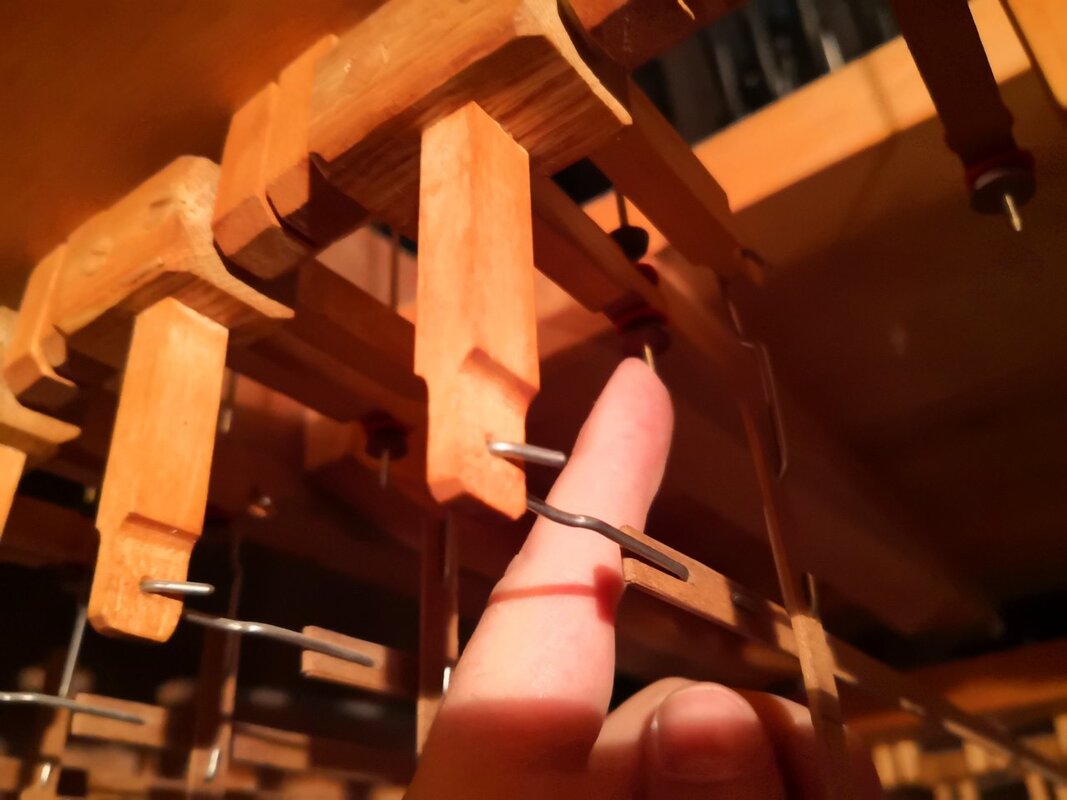
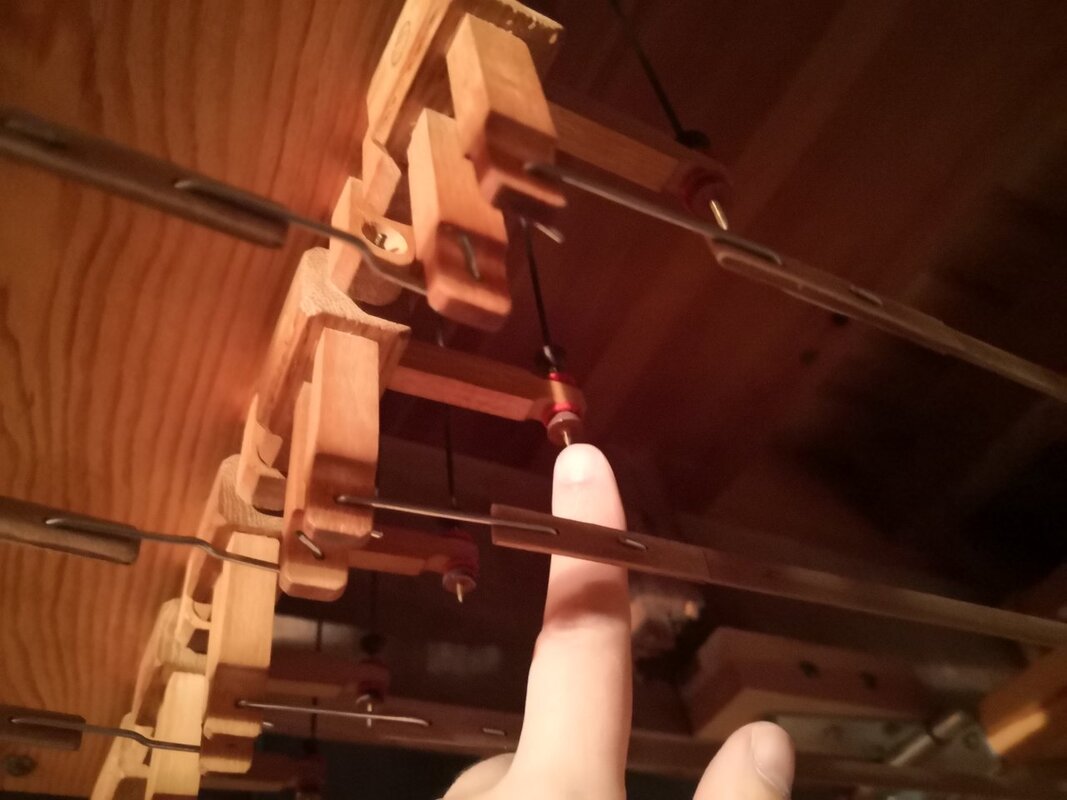
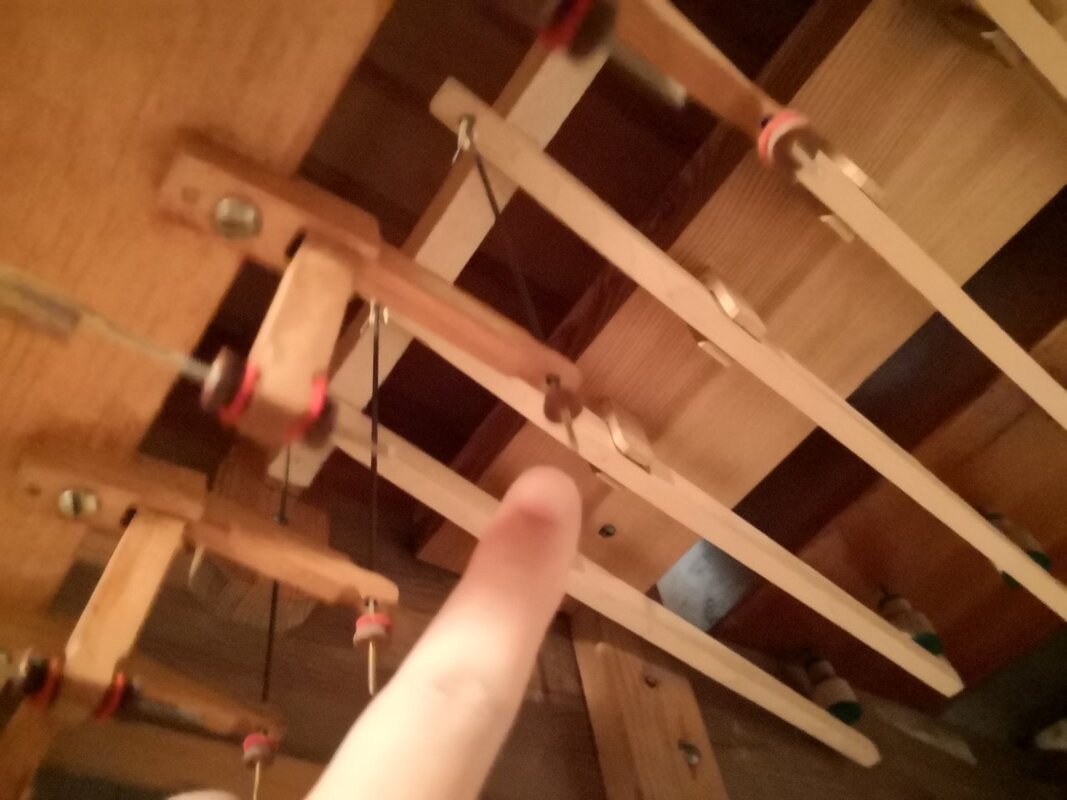
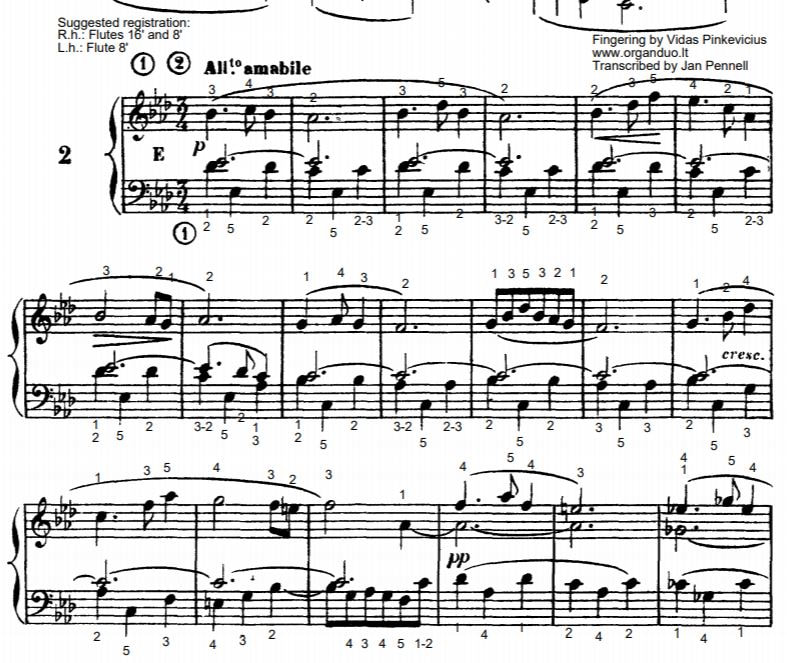

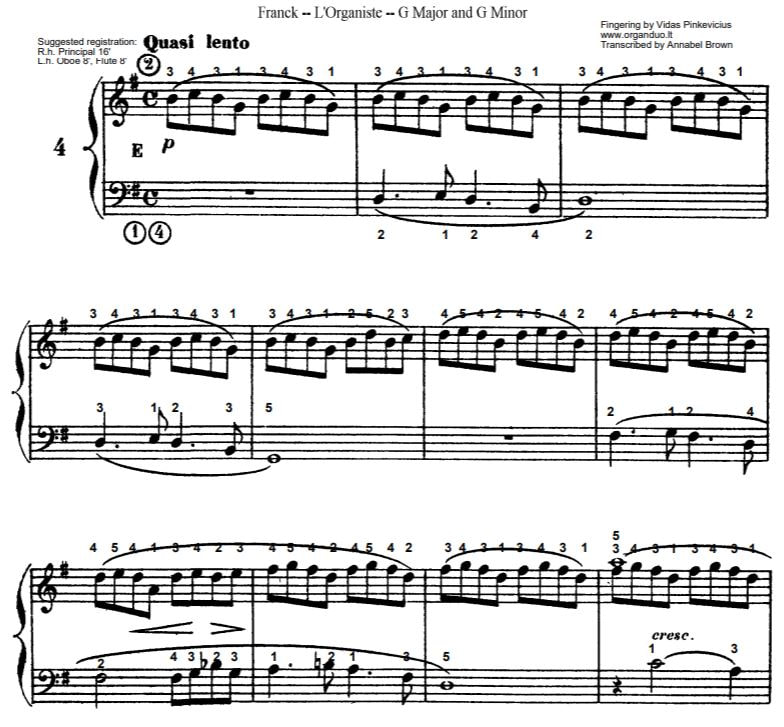
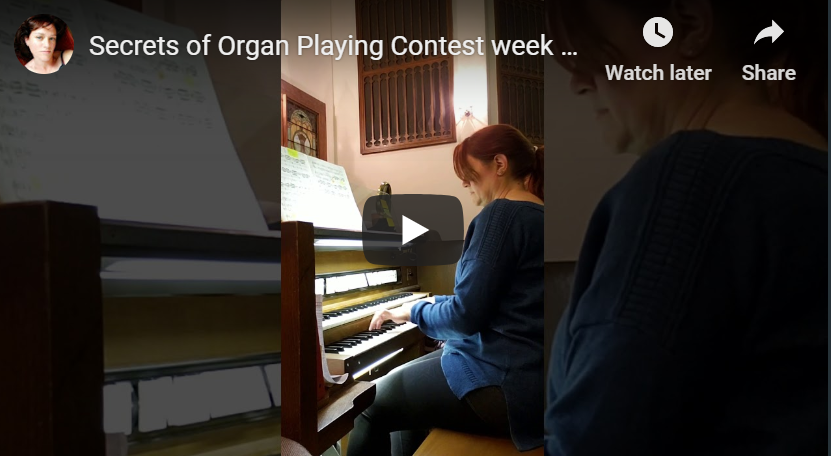

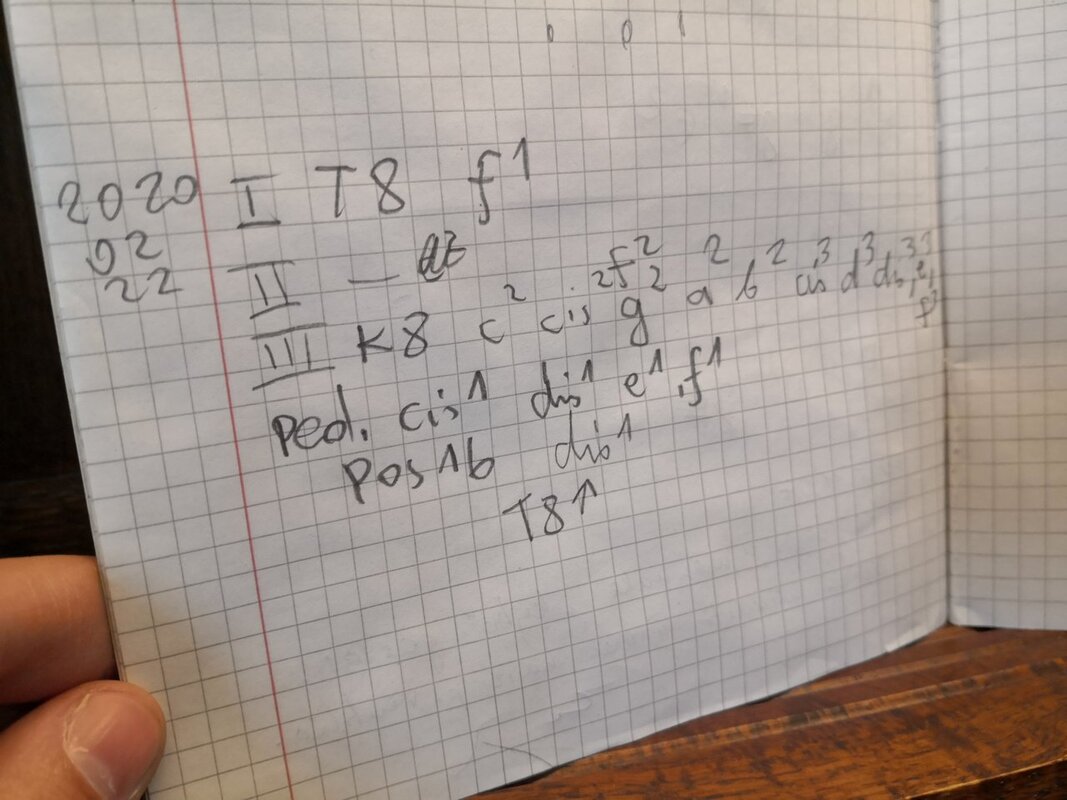
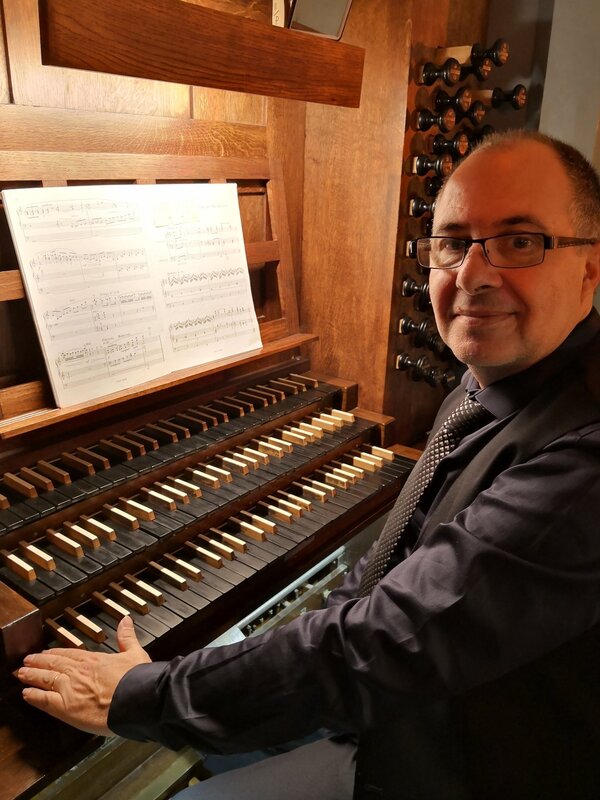
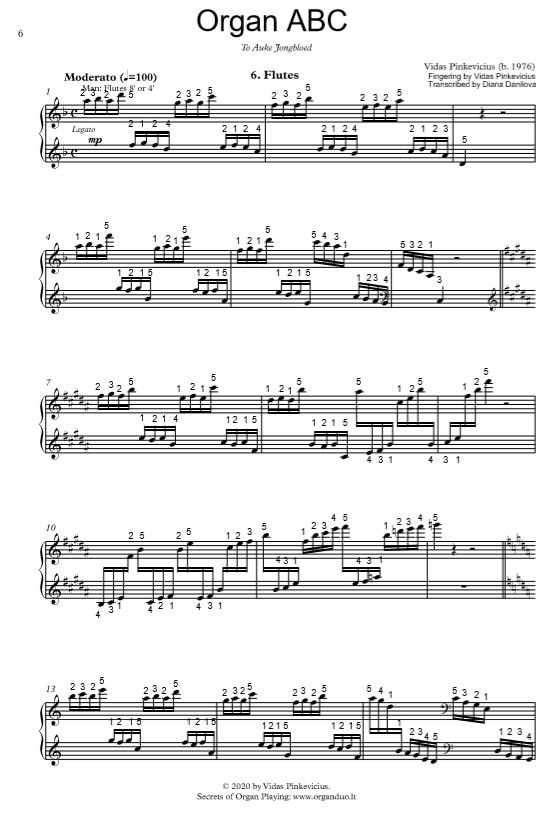
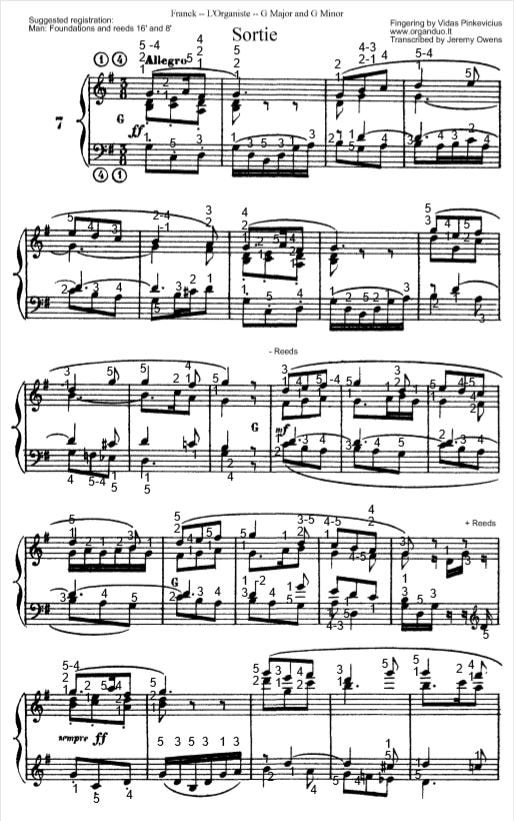



 RSS Feed
RSS Feed